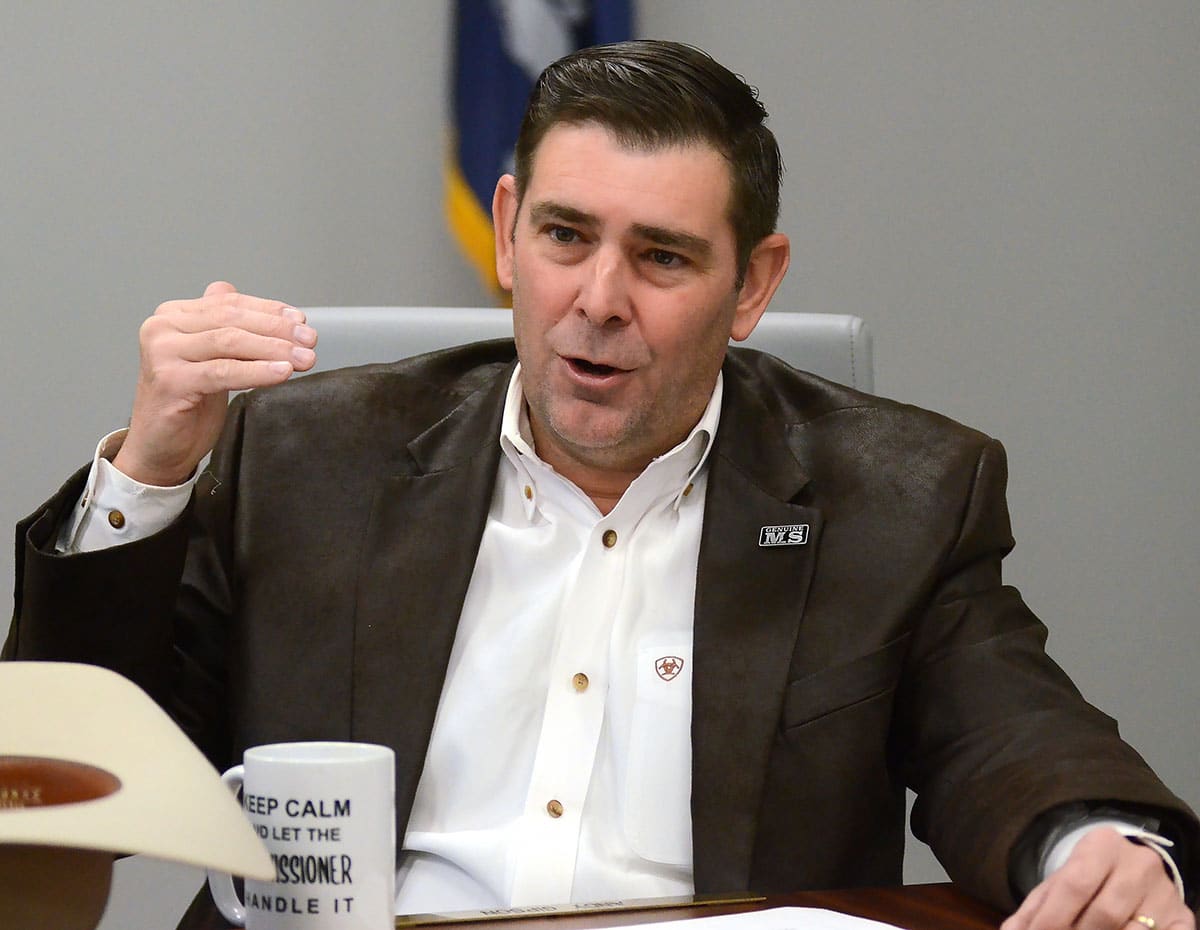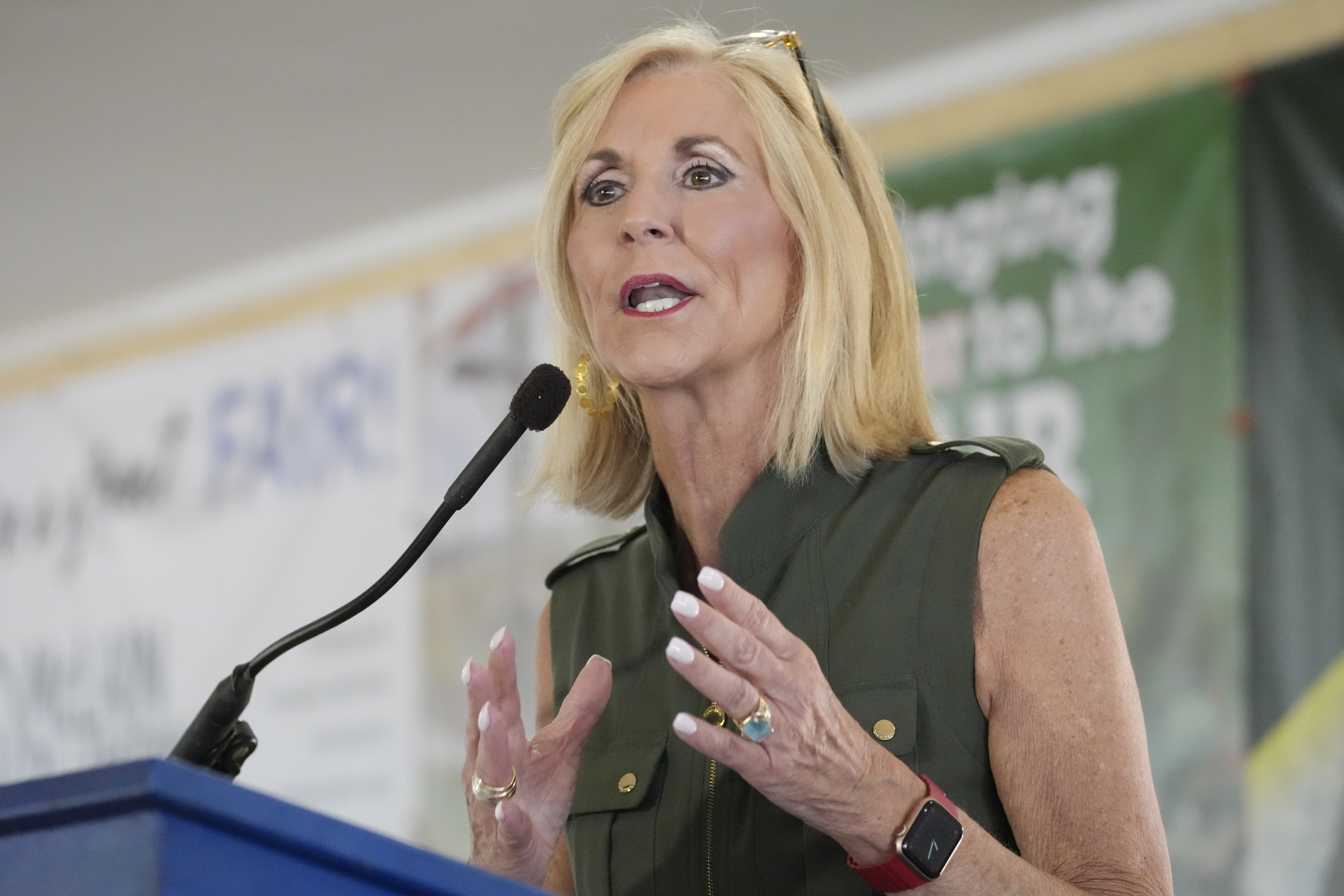Mississippi Today
Mississippi Ag chief, lawmakers targeting foreign farm ownership

Mississippi officials are calling attention to the growing amount of foreign-owned farmland in the state, although it makes up less than three percent of the state’s agriculture and forest land.
The amount of Mississippi farmland owned by foreign, nonresidents grew by over 100,000 acres from 2011 to 2021, according to a November report, totaling over 700,000 acres now. The report was written by a recently formed committee of Agriculture and Commerce Commissioner Andy Gipson; Attorney General Lynn Fitch; Rep. Angela Cockerham, I-Magnolia; Sen. Brice Wiggins, R-Pascagoula; Rep. Bill Pigott, R-Tylertown; Sen. Chuck Younger, R-Columbus; and three private sector appointees.
The report calls for the Legislature to create an enforcement mechanism for already-existing rules on land ownership.

According to state law, foreign, nonresident land ownership is prohibited except for: taking a lien on a property to secure a debt; inheriting property, if the new owner is from Lebanon or Syria (communities from those countries settled in Mississippi in the late 1800s, around when the state’s current constitution was written); having no more than 320 acres for industrial development; or having no more than five acres for a residence.
Foreign-owned farmland makes up 2.6% of the state’s total, slightly less than the national rate of 3.1%. The Netherlands is by far the top among the abroad landowners in Mississippi, with about 350,000 acres, according to the report. German and British owners each account for another 60,000 acres, roughly.
Gipson told Mississippi Today that those countries are likely responding to European regulations around fertilizer and dairy cows, leading them to buy forest land in places like Mississippi.

“I think that a lot of this activity, that has increased in the last 10 years, is happening because people around the world understand that the greatest physical asset in the state of Mississippi is our farmland,” said Gipson.
The November report also specifically targets land owned by federally defined adversaries, something other states have also addressed recently.
“Continued unrestricted foreign ownership of Mississippi’s agricultural land and water
rights especially by foreign adversaries … presents a serious concern to Mississippi and to national security, including food security,” the report says.
Only one of those adversaries, China — which owns 88 acres in the state — is listed in the report.
In October, Arkansas became the first state to order that a Chinese-owned company, Syngenta, divest itself of 160 acres of farmland in the state, the Associated Press reported. In just the last year, 10 states have added laws restricting or banning foreign ownership of farmland, the article says. In response, Syngenta told the AP: “Our people in Arkansas are Americans led by Americans who care deeply about serving Arkansas farmers. This action hurts Arkansas farmers more than anyone else.”

While Mississippi already has such laws, officials are looking for guidance on how to enforce them. In May, after Gipson asked Fitch if land purchases violating state law were “null and void,” the AG responded that the state law only says that such land is supposed to revert ownership to the state. Gipson said in the report that he plans to follow up with Fitch about how the state can apply such a process, known as “escheatment.”
During a public comment period, nearly all of the dozens of Mississippians who wrote in to the committee expressed concern over other countries owning farmland in the state.
The committee also heard in-person testimony from several groups. One of which, the think-tank America First Policy Institute, specifically warned about the potential influence of China’s Communist Party through its citizens buying farmland in Mississippi. The nonprofit was founded in 2021 to promote former President Donald Trump‘s public policy agenda.
“We must fortify our supply chains and ensure national self-reliance to marginalize the CCP and its strategies to subvert us,” the group’s Chair Steve Yates and Director Adam Savit said in a statement.
Another testimony, from the Mississippi Forestry Association, sided against more regulations, arguing that doing so could hurt the state’s forestry industry.
“Foreign owners of forests in Mississippi share Mississippi values,” Executive Director Casey Anderson said in a statement. “They understand the important economic value of their forests to Mississippi.”
This article first appeared on Mississippi Today and is republished here under a Creative Commons license.
Did you miss our previous article…
https://www.biloxinewsevents.com/?p=313394
Mississippi Today
Podcast: Mississippi Hospital Association’s Roberson discusses Medicaid expansion outlook under Trump, other 2025 legislative health care issues

Richard Roberson, president and CEO of the Mississippi Hospital Association, tells Mississippi Today’s Bobby Harrison and Geoff Pender a new Trump administration would likely approve Mississippi Medicaid expansion work requirements. He says revamping the state’s certificate of need laws is likely to be a major issue before lawmakers, and he discusses a new alliance of hospitals that left the MHA and formed a new organization.
READ MORE: As lawmakers look to cut taxes, Mississippi mayors and county leaders outline infrastructure needs
This article first appeared on Mississippi Today and is republished here under a Creative Commons license.![]()
Mississippi Today
An ad supporting Jenifer Branning finds imaginary liberals on the Mississippi Supreme Court

The Improve Mississippi PAC claims in advertising that the state Supreme Court “is in danger of being dominated by liberal justices” unless Jenifer Branning is elected in Tuesday’s runoff.
Improve Mississippi made the almost laughable claim in both radio commercials and mailers that were sent to homes in the court’s central district, where a runoff election will be held on Tuesday.
Improve Mississippi is an independent, third party political action committee created to aid state Sen. Jenifer Branning of Neshoba County in her efforts to defeat longtime Central District Supreme Court Justice Jim Kitchens of Copiah County.
The PAC should receive an award or at least be considered for an honor for best fiction writing.
At least seven current members of the nine-member Supreme Court would be shocked to know anyone considered them liberal.
It is telling that the ads do not offer any examples of “liberal” Supreme Court opinions issued by the current majority. It is even more telling that there have been no ads by Improve Mississippi or any other group citing the liberal dissenting opinions written or joined by Kitchens.
Granted, it is fair and likely accurate to point out that Branning is more conservative than Kitchens. After all, Branning is considered one of the more conservative members of a supermajority Republican Mississippi Senate.
As a member of the Senate, for example, she voted against removing the Confederate battle emblem from the Mississippi state flag, opposed Medicaid expansion and an equal pay bill for women.
And if she is elected to the state Supreme Court in Tuesday’s runoff election, she might be one of the panel’s more conservative members. But she will be surrounded by a Supreme Court bench full of conservatives.
A look at the history of the members of the Supreme Court might be helpful.
Chief Justice Michael Randolph originally was appointed to the court by Republican Gov. Haley Barbour, who is credited with leading the effort to make the Republican Party dominant in Mississippi. Before Randolph was appointed by Barbour, he served a stint on the National Coal Council — appointed to the post by President Ronald Reagan who is considered an icon in the conservative movement.
Justices James Maxwell, Dawn Beam, David Ishee and Kenneth Griffis were appointed by Republican Gov. Phil Bryant.
Only three members of the current court were not initially appointed to the Supreme Court by conservative Republican governors: Kitchens, Josiah Coleman and Robert Chamberlin. All three got their initial posts on the court by winning elections for full eight-year terms.
But Chamberlin, once a Republican state senator from Southaven, was appointed as a circuit court judge by Barbour before winning his Supreme Court post. And Coleman was endorsed in his election effort by both the Republican Party and by current Republican Gov. Tate Reeves, who also contributed to his campaign.
Only Kitchens earned a spot on the court without either being appointed by a Republican governor or being endorsed by the state Republican Party.
The ninth member of the court is Leslie King, who, like Kitchens, is viewed as not as conservative as the other seven justices. King, former chief judge on the Mississippi Court of Appeals, was originally appointed to the Supreme Court by Barbour, who to his credit made the appointment at least in part to ensure that a Black Mississippian remained on the nine-member court.
It should be noted that Beam was defeated on Nov. 5 by David Sullivan, a Gulf Coast municipal judge who has a local reputation for leaning conservative. Even if Sullivan is less conservative when he takes his new post in January, there still be six justices on the Supreme Court with strong conservative bonafides, not counting what happens in the Branning-Kitchens runoff.
Granted, Kitchens is next in line to serve as chief justice should Randolph, who has been on the court since 2004, step down. The longest tenured justice serves as the chief justice.
But to think that Kitchens as chief justice would be able to exert enough influence to force the other longtime conservative members of the court to start voting as liberals is even more fiction.
This article first appeared on Mississippi Today and is republished here under a Creative Commons license.![]()
Mississippi Today
On this day in 1968


Nov. 24, 1968

Black Panther leader Eldridge Cleaver fled the U.S. to avoid imprisonment on a parole violation. He wrote in “Soul on Ice”: “If a man like Malcolm X could change and repudiate racism, if I myself and other former Muslims can change, if young whites can change, then there is hope for America.”
The Arkansas native began to be incarcerated when he was still in junior high and soon read about Malcolm X. He began writing his own essays, drawing the praise of Norman Mailer and others. That work helped him win parole in 1966. His “Soul on Ice” memoir, written from Folsom state prison, described his journey from selling marijuana to following Malcolm X. The book he wrote became a seminal work in Black literature, and he became a national figure.
Cleaver soon joined the Black Panther Party, serving as the minister of information. After a Panther shootout with police that left him injured, one Panther dead and two officers wounded, he jumped bail and fled the U.S. In 1977, after an unsuccessful suicide attempt, he returned to the U.S. pleaded guilty to a reduced charge of assault and served 1,200 hours of community service.
From that point forward, “Mr. Cleaver metamorphosed into variously a born-again Christian, a follower of the Rev. Sun Myung Moon, a Mormon, a crack cocaine addict, a designer of men’s trousers featuring a codpiece and even, finally, a Republican,” The New York Times wrote in his 1998 obituary. His wife said he was suffering from mental illness and never recovered.
This article first appeared on Mississippi Today and is republished here under a Creative Commons license.![]()
-

 Kaiser Health News7 days ago
Kaiser Health News7 days agoA Closely Watched Trial Over Idaho’s Near-Total Abortion Ban Continues Tuesday
-

 Local News3 days ago
Local News3 days agoIntroducing our Student Athlete of the Week: Ocean Springs’ very own Mackenzie Smith
-

 Local News6 days ago
Local News6 days agoSherral’s Diner to be featured on America’s Best Restaurants
-

 News from the South - Georgia News Feed5 days ago
News from the South - Georgia News Feed5 days agoJose Ibarra found guilty in murder of Laken Riley | FOX 5 News
-

 News from the South - Alabama News Feed6 days ago
News from the South - Alabama News Feed6 days agoTrial underway for Sheila Agee, the mother accused in deadly Home Depot shooting
-

 News from the South - Kentucky News Feed5 days ago
News from the South - Kentucky News Feed5 days agoNicholasville organization activates weather plan in response to bitter cold temperatures
-

 News from the South - Alabama News Feed4 days ago
News from the South - Alabama News Feed4 days agoJudge grants mistrial in Sheila Agee trial due to ‘unhinged juror’
-

 News from the South - Alabama News Feed5 days ago
News from the South - Alabama News Feed5 days agoAlabama's weather forecast is getting colder, and a widespread frost and freeze is likely by the …


























